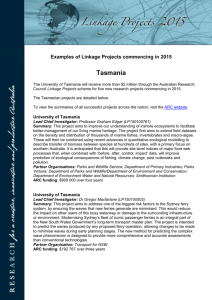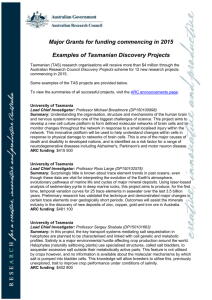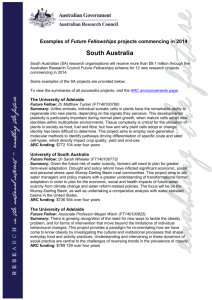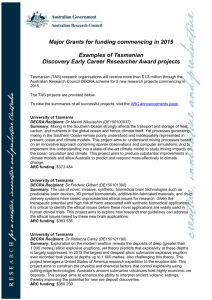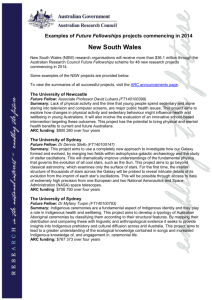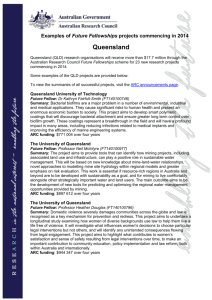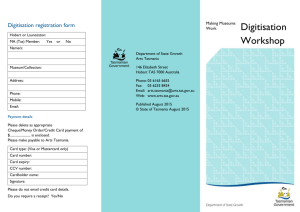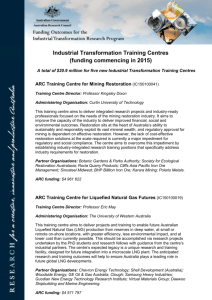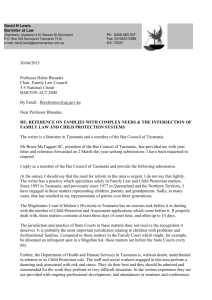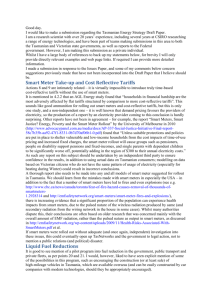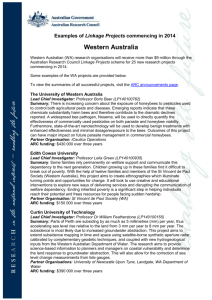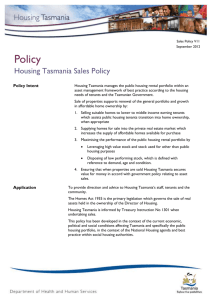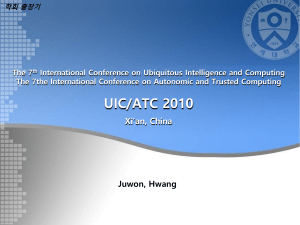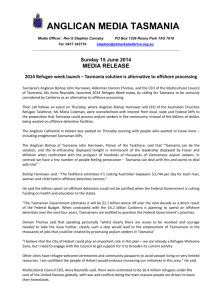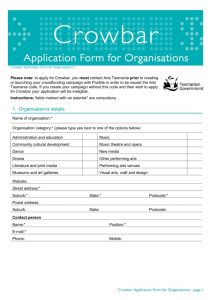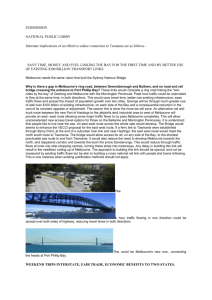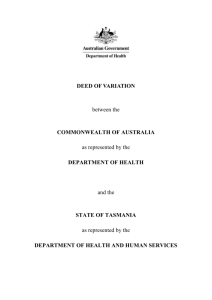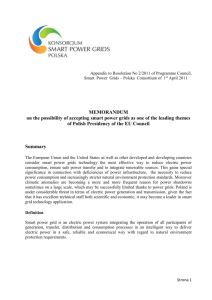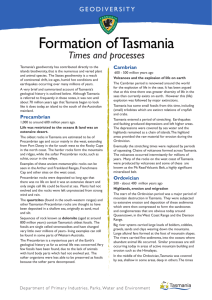Word Format - Australian Research Council
advertisement
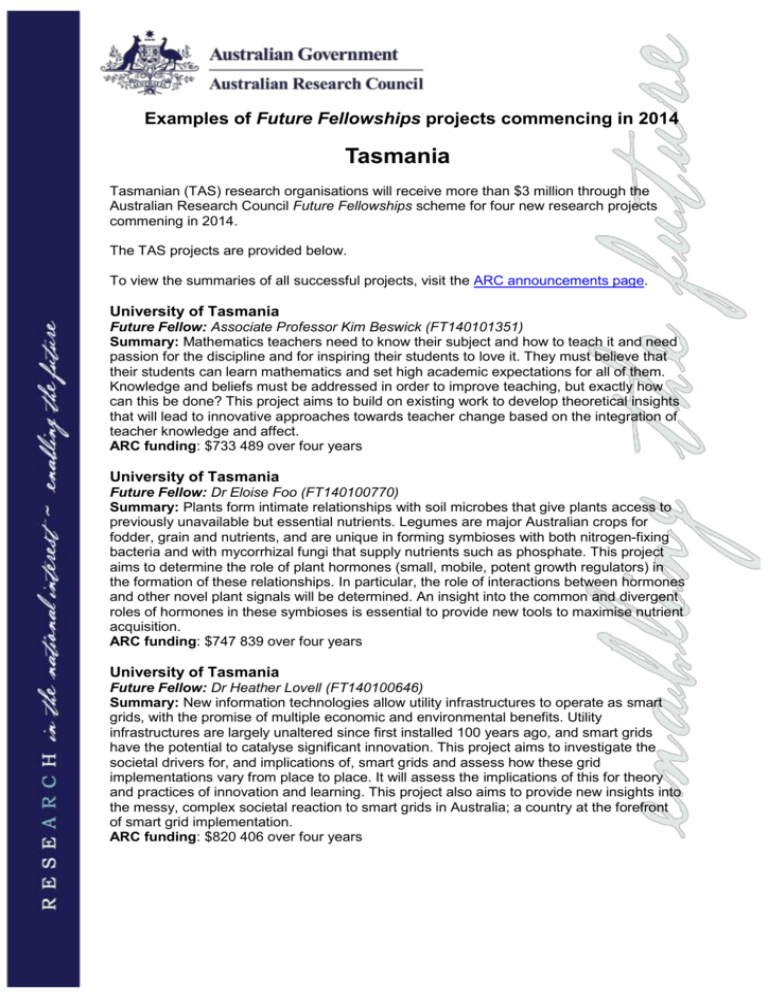
Examples of Future Fellowships projects commencing in 2014 Tasmania Tasmanian (TAS) research organisations will receive more than $3 million through the Australian Research Council Future Fellowships scheme for four new research projects commening in 2014. The TAS projects are provided below. To view the summaries of all successful projects, visit the ARC announcements page. University of Tasmania Future Fellow: Associate Professor Kim Beswick (FT140101351) Summary: Mathematics teachers need to know their subject and how to teach it and need passion for the discipline and for inspiring their students to love it. They must believe that their students can learn mathematics and set high academic expectations for all of them. Knowledge and beliefs must be addressed in order to improve teaching, but exactly how can this be done? This project aims to build on existing work to develop theoretical insights that will lead to innovative approaches towards teacher change based on the integration of teacher knowledge and affect. ARC funding: $733 489 over four years University of Tasmania Future Fellow: Dr Eloise Foo (FT140100770) Summary: Plants form intimate relationships with soil microbes that give plants access to previously unavailable but essential nutrients. Legumes are major Australian crops for fodder, grain and nutrients, and are unique in forming symbioses with both nitrogen-fixing bacteria and with mycorrhizal fungi that supply nutrients such as phosphate. This project aims to determine the role of plant hormones (small, mobile, potent growth regulators) in the formation of these relationships. In particular, the role of interactions between hormones and other novel plant signals will be determined. An insight into the common and divergent roles of hormones in these symbioses is essential to provide new tools to maximise nutrient acquisition. ARC funding: $747 839 over four years University of Tasmania Future Fellow: Dr Heather Lovell (FT140100646) Summary: New information technologies allow utility infrastructures to operate as smart grids, with the promise of multiple economic and environmental benefits. Utility infrastructures are largely unaltered since first installed 100 years ago, and smart grids have the potential to catalyse significant innovation. This project aims to investigate the societal drivers for, and implications of, smart grids and assess how these grid implementations vary from place to place. It will assess the implications of this for theory and practices of innovation and learning. This project also aims to provide new insights into the messy, complex societal reaction to smart grids in Australia; a country at the forefront of smart grid implementation. ARC funding: $820 406 over four years University of Tasmania Future Fellow: Dr Gretta Pecl (FT140100596) Summary: Global redistribution of Earth's species is widely recognised as a fingerprint of climate change. However, the physiological and ecological processes that underpin such shifts in the distribution of marine species are poorly understood. Even less is known about why species respond at different rates, and how such widespread changes will impact the structure and function of Australia's marine ecosystems. This research will address critical knowledge gaps of why and how species respond in vastly different ways to environmental change. Research outcomes will improve the capacity to predict responses of marine species and ecosystems to climate change and provide advice relevant to strategic management of valuable natural resources. ARC funding: $763 857 over four years
